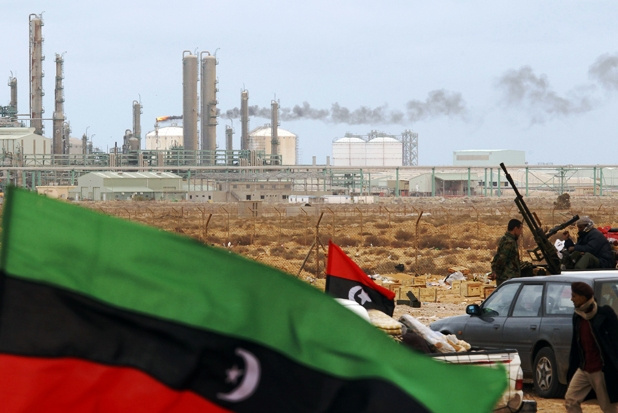Eastern Libya’s Call for Autonomy Good News for the West

As the new, troubled rulers of post-Qaddafi Libya strive to hold the string of affairs in Tripoli, Eastern Libya has exacerbated their stress by calling for semi-autonomy. Frustrated with the new government’s inefficiency in tackling the problem of their oil-rich region, power-holders in the Cyrenaica province of Libya have decided to pull away from the central government and call Ahmed Snoussi, grandson of Libya’s last monarch King Idris the 1st, as their new leader.
Forecasting the course of developments in Libya is a daring task due to the military intervention of international actors and the undeniable role of NATO in overthrowing Qaddafi, the prolongation of ousting the Libyan dictator from power (compared with the short-lived resistance of his Egyptian and Tunisian counterparts), and the unique sociopolitical settings of Libya. Add to this the quest by foreign countries (the US, France, Italy, etc.) and domestic forces (the jihadists and seasoned politicians) to win the lion’s share of the country’s new circumstances and hold control over Libya’s massive oil wealth. As another complicating factor, unlike Egypt or Tunisia, where the Muslim Brotherhood and Ennahda Islamists were the key mobilizing and controlling loci, there exists no organized political groups which can fill the political gap created by the death of Muammar Qaddafi.
The future of Libya will be heavily influenced by three basic factors: Qaddafi’s death and the collapse of a powerful central government, a strictly traditional society based on tribal affiliations, and the lucrative oil resources of the country.
Libya is one of the big oil exporters of the world. High oil revenue and low population had placed it among the wealthiest African nations in terms of GDP. Historically, the country has been divided into the three large provinces of Fezzan, Cyrenaica and Tripolitania. Despite the fact that 85% of the population live on the coast of the Mediterranean Sea, for centuries, Libyans remained faithful to their tribal structures. Qaddafi did not try to remodel Libyan society during his 42-year rule, but tried to defang the powerful tribes through money or repression, in order to keep the country under one flag.
Despite worries by international oil corporations about the possibility of contract revocation with the call of oil-rich Eastern Libya for self-autonomy, it seems that a disintegrated Libya could better serve the interests of the Western countries in the long run. We might hear of their support for federal governance of Libya in the following months, where every tribe has demarcated its own territory. After all, reconciliation with local rulers is much easier than negotiation with a powerful central government. An illustrative example for this situation is the Autonomous Kurdistan region of Iraq. Despite the superficial unity, everyone knows that Iraqi Kurdistan is under full control of Massoud Barezani: he is the one who has the final word and can even impose his decisions over the central government. Autonomous Kurdistan can even welcome Israel, the archenemy of Arab states in the Middle East, without the central government being able to do much. The case of Sudan could also help to gain a better understanding of Libya’s situation: Omar al-Bashir’s inefficient governance and his monopoly over power resulted in the wealthy southern region of the country’s independence, and the country may even lose the oil-rich Darfur to foreign pressure. With such profitable precedents, Libya could be just another victim of the West.

